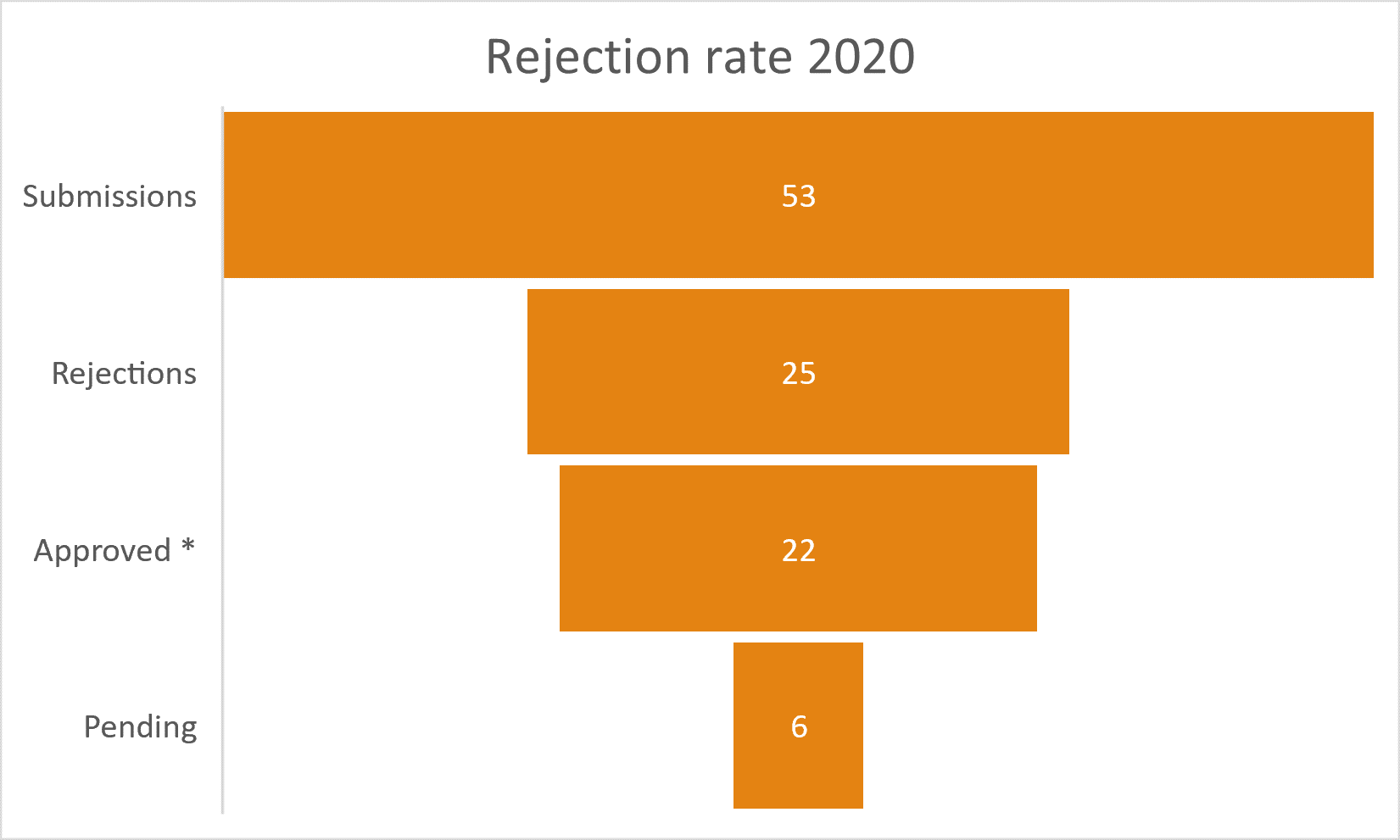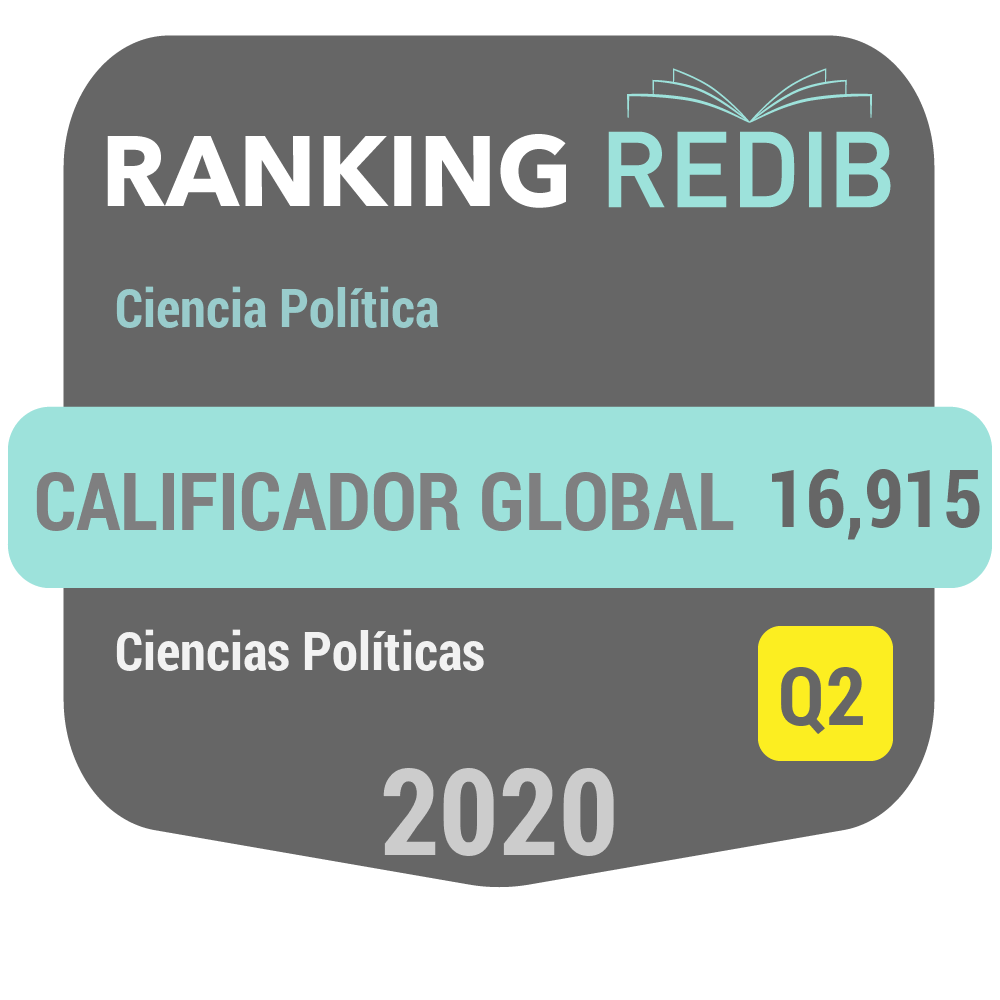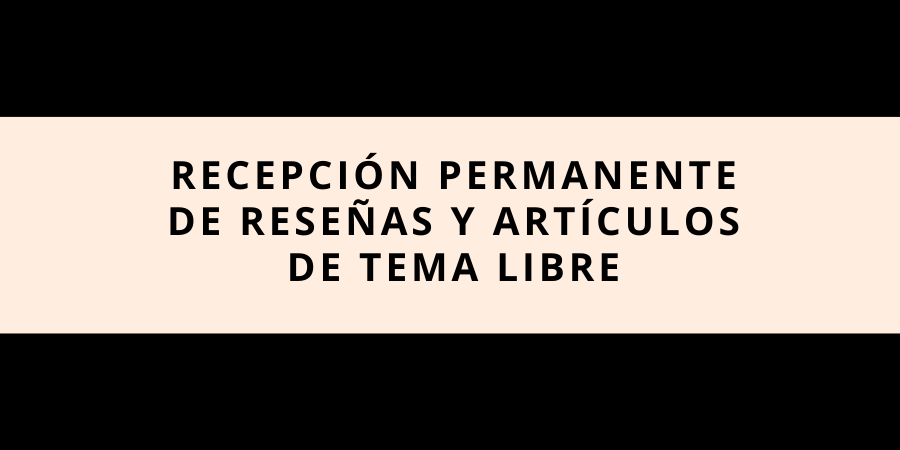About the Journal
Focus and Scope
Ciencia Política (CP) is a biannual journal created and published since 2006 by the Department of Political Science of the Universidad Nacional de Colombia, Bogota. The first issue of the year is generally published at the beginning of the January-June period and the second one at the beginning of July-December. The main objective of the journal is to publish original articles and unpublished research results in the topic areas of political theory, political analysis, government and public policies as well as international and global relations. The magazine publishes articles in Spanish, English, French and Portuguese.
CP aims to be a communication platform for the national and international political community and, in turn, an instrument to catalyze scientific and political debate by disseminating research and reflection on issues relevant to the Latin American and Colombian spheres. CP thus hopes to contribute to conforming a more informed, more deliberative, more critical and active citizenship.
CP is intended for undergraduate and graduate students, professors and national and international professionals in the field of Political Science as well as Social Sciences and Humanities in general. At the same time, CP recognizes the challenges involved in the circulation of knowledge and the changing dynamics of scientific production. Therefore, it faces these challenges with current, critical and pertinent content that allows thoughtful dialogue between academic, institutional and social sectors. In this way, it promotes diversity of knowledge.
CP's Secctions
Presentation, which introduces and contextualizes the central theme of the issue and highlights the most relevant aspects of each new edition.
Central Theme, in which a theme of particular interest for the debate on political science is widely developed. The edition of this section is supported by an invited editor who specializes in the subject chosen or approved by the Editorial Committee. The call for papers for the Central Theme can be seen in the "Announcements"
Other research, includes investigations of different themes and orientations about political science. For this section and the next the call for papers is always open;
Recensions, dedicated to the review of recent publications relevant to the study of Political Science. Critical or analytical reviews of a book are usually published, although short discussion articles are sometimes included.
Finally, the Translations section is intermittent and is dedicated to the publication of unpublished translations of articles or book chapters.
Ciencia Política is included in the following catalogs and bibliographic bases:
ESCI. Emergin Sources Citation Index. WoS.
ABI/INFORM GLOBAL. ProQuest.
Latindex. Regional Online Information System for Scientific Journals from Latin America, the Caribbean, Spain and Portugal
Dialnet. Dissemination of Alerts in the Network (University of La Rioja Spain)
FLACSO ANDES. Digital library specializing in Social Sciences
CLASE. Latin American Quotations in Social Sciences and Humanities.
REDIB. Ibero-American innovation and knowledge network.
DOAJ. Directory of Open Access Journal.
ProQuest. Databases, EBooks and Technology for Research.
Guidelines for Authors
Last update: September 2021
Ciencia Política (CP) only takes under its consideration unpublished well-prepared manuscripts, ethically outline and relevant to the development of the knowledge of Political Science studies. We have a special interest in articles that provides investigation results, bibliographic revisions, or theoretical reflections. Likewise, analytic reviews of books are welcome. Permanently, we receive investigations for Other Research and reviews for Recensions. If you like to submit an article to the Central Theme of CP, you shall go to the “Call for paper and Announcements” menu on our OJS portal: https://revistas.unal.edu.co/index.php/cienciapol/. For submission, you shall follow the subsequent instructions.
Manuscript Formatting for First Review
It is highly desirable to submit an article in the right formatting. This will be the first thing to evaluate by the Editorial Team. If the manuscript does not fulfil these outlines, it will be sent back to the authors for they to make proper corrections.
- Manuscripts shall be sent in .docx format (Microsoft Office Word™).
- It must have a main descriptive title between 10 and 20 words in its original language, Spanish and English. The title should not be written with all capital letters. The main title shouldn’t be numbered. It is advisable to number subtitles within the article with Arabic numbers (1, 2, 3), without mixing letters with numbers and without using these types of characters: “i, ii, iii”.
- In the first page, you should include your complete name, your current institutional affiliation, e-mail (institutional one) and ORCID identifier. Also, you should mention if the article is part of a research project of if it has been financed (include title of the project, group number or institution).
- The second page shall include a descriptive abstract written in the third person. You should translate your abstract to English and Spanish. Abstracts must give an account of the structure of the article (central objective, methodology and conclusions reached). They must not exceed 200 words and must include a maximum of 7 keywords in English and Spanish. We recommend keywords different from the main title. They should be part of UNESCO, the International Labor Organization (ILO), or the Organization for Economic Cooperation and Development (OECD) thesauri to give greater visibility to the article and facilitate the search.
- The extension shall be between 7000 and 12 000 words, including abstracts and a list of references.
- Font should be 12 points for text and 11 points for indented cites and footnotes. Everything should be double-spaced (including text, footnotes, references, figures, graphics, and tables).
- Identification and the bibliographic reference of the graphic components, such as tables, graphs, photographs and illustrations should be easy to understand. If they are from your authorship, you should indicate it. These pieces must be sent in a separate file listed in order of appearance. A resolution higher than 300 dpi is recommended for images to be published. If the image has reproduction restrictions, you must request authorization and send us the documentation that shows the copyright agreement. Graphic pieces must follow this format:
Table 1. Graphic example.
|
Information 1 |
Comparation 1 |
Results 1 |
|
Data 1 |
Data 3 |
Data 5 |
|
Data 2 |
Data 4 |
Data 6 |
Note. In this space you can describe the context of the graphic piece, abbreviations, references such as author and elaboration date. If you are the author of the piece, you shall indicate it. Also, you can display complementary information.
This formatting can be used for graphics, images, diagrams and so on. Remember thar CP does not use annexes. All the information must be in the body of the text.
- Footnotes are only used for supplementing information, briefly explaining, or commenting an idea. No reference should be included in footnotes. Arabic numerals should be used, not asterisks or letters.
- The manuscript should be under the American Psychological Association (APA) citation system. Following APA, the manuscript must avoid ibíd., id., cf., cit. en., op. cit. The list of reference must be in alphabetic order. If there are several works by the same author, they must be arranged chronologically and differentiated with letters (a, b, c…) in case of having the same year of publication. Down below you will find citation examples that are common in CP.
The documents must be sent fulfilling the previous criteria through: https://revistas.unal.edu.co/index.php/cienciapol in the button “Submit an article”. OJS portal offers the possibility of following the article review process, making comments and opening discussions with the editor, as well as free access to all CP content. The portal requests some metadata of the article and personal data for strict use of communication with the Editorial Team.
Citation Criteria
You may check APA guide by University of Alberta in case of doubt: https://guides.library.ualberta.ca/apa-citation-style.
All textual and indirect citations must be properly referenced even if they are from your authorship. Do not include non-cited material in the list of references. When they exceed 40 words, the cite must be indented (block quote). In these citations, quotation marks or italics are not used (if the quotation is in a different language, italics must be used). The original punctuation of the citation is placed before the parentheses.
Parenthetical citations must follow Authors-Date system: (Author, year, pages). If the citation is indirect, the expression “as cited in” must be added; example: (Monclús, as cited in Mariño, 1996, p. 11).
Bibliographic review articles must have more than 50 references to be considered as such. These types of articles usually have many electronic citations, so it is recommended to check the links before submitting the article and include DOI whenever possible. Reflection and research articles must cite at least 15 references.
Example of common references in CP
- Books
Agamben, G. (2006). La comunidad que viene [Trans. J. L. Villacañas]. Madrid: Pre-textos. Citation: (Agamben, 2006).
Foucault, M. (2007). ¿Qué es la crítica? In Sobre la Ilustración (pp. 3-52). Madrid: Tecnos. Citation: (Foucault, 2007).
Gómez, S., Moore, C. y Múnera, L. (Eds.). (2018). Los saberes múltiples y las ciencias sociales y políticas (Vol. II). Bogotá: Universidad Nacional de Colombia. Citation: (Gómez, Moore y Múnera, 2018).
Pecheny, M. (2010). Political Agents or Vulnerable Victims? Framing Sexual Rights as Sexual Health in Argentina. In Aggleton, P. y Parker, R. (Eds.), Handbook of sexuality, health and rights (pp. 359-369). New York: Routledge. DOI: https://doi.org/10.4324/9780203860229. Citation: (Pecheny, 2010).
Comité de América Latina y el Caribe para la Defensa de los Derechos de la Mujer, CLADEM Paraguay. (2008). Contexto Nacional. Retrieved from** http://www.cladem.org/america-y-el-caribe/70-cladem-paraguay. Citation: the first time: Comité de América Latina y el Caribe para la Defensa de los Derechos de la Mujer (CLADEM, 2008). The following: (ClADEM, 2008).
* It is important to indicate the name of the translator of any book who is not edited in its original language. If authors by their own means translate any given quotations, it has to be credited within the parenthesis as follows: (Agamben, 2006, p. 34, translation is mine).
** You use “retrieve from” only in cases in which the web page update constantly its content (Sánchez, 2020a). It is recommended to add DOI including “https” for the link to work.
- Journal
Cano, C., Escobar, J., Pérez, R. y Silva, S. (2021). Proyectos valiosos: emociones políticas en la pandemia. Ciencia Política, 16(31), 157-179. DOI: https://doi.org/10.15446/cp.v16n31.98331. Citation: first time, all the names, followings: (Cano, et al., 2021).
- Newsletters
Gardeazábal, J. (septiembre 12, 2001). Miedo, la cuota del patriotismo. El Espectador. Citation: (Gardeazábal, 2001).
Lilian Soto a favor del aborto y el matrimonio igualitario en Paraguay. (April/May, 2013). Ultima hora. Retrieved from http://www.ultimahora.com/lilian-soto-favor-del-aborto-y-el-matrimonio-igualitario-paraguay-n612223.html. Citation: (“Lilian Soto a favor”, 2013).
* When the reference has no date: n.d.
- Interviews
Since it is often to see interviews in CP’s articles, we consider valuable to explain how to cite them correctly. Interviews may have information retrievable from online or print sources (published audios, transcripts, etc.). But very often interviews were outline for the research and have not been publish by any means. In this latter case, it is advisable to consider this work as a personal communication and, for that reason, is not necessary to add it to the list of references. Nevertheless, it is recommended explain the interview methodology as well as the authorization for publish the information. Parenthetical citations should be included with the names, pseudonyms or initials of the person interviewed to identify different sources. The same indented citation rules should be used starting at 40 words and in quotation marks when lower.
If the interview does have some means by which the readers can retrieve the content, it must follow the citation format of a web page, journal, or book (Sánchez, 2020b).
Example: Escobar, J. (21 de marzo de 2020). ¿Cómo llegar a ser independiente? / Interview by Santiago Mateo Roa. Revista Azul de América. htttp://ww.RAA.com/entrevista. Citation: (Escobar, 2020).
- Conferences
Bareiro, L. y Echauri, C. (junio, 2009). Mecanismos para el cambio político. Sistemas electorales y representación política de las mujeres. Work document presented in Encuentro de Mujeres parlamentarias de América Latina y el Caribe, España, Madrid. Citation: (Bareiro y Echauri, 2009).
- Thesis
Aureano, G. (1998). La construction politique du toxicomane dans l’argentine post-autoritaire. Un cas de citoyenneté à basse intensité. (PhD. Disertation). Université de Montréal, Montreal, Canada.
- Laws
Colombian laws must follow this format:
Law or Colombian ordinance: Organism who rule the law. (Day, month, year). Law Title. [number]. DO: [Oficial Journal]. https://enlace.es. Example: Congreso de la República de Colombia. (29, January, 2003). Disposiciones sobre regímenes pensionales. [Ley 797 de 2003]. DO: 45079. Citation: (Ley 797, 3003).
Article from a law format: Organism who rule the law (day, month, year). Article. [Number and title]. Law Title. [Law number]. DO:. Example: Congreso de la República de Colombia. (9, Apil, 2003). Reglamentación del artículo 58. Ley 794 de 2003. [Decreto 890 de 2003]. DO: 45155.
Other Manuscripts Criteria
Reviews must not exceed 2500 words and must meet the above criteria. In addition, only recent and relevant books will be taken under consideration (two years old at the date of publication). The title of the reviewed book must be the main title and all the editorial information must be included: authors, year, title, city, publisher, and the total number of pages. Authors must include their full name, email, and recent institutional affiliation in a footnote. Translations must have been unpublished and you must provide the authorization of the publisher and author of the original article. This authorization must be sent to CP editors, as it will be published in a footnote. They must also have the author data,
Peer Review Process
Ciencia Política (CP) is concerned with the integrity and efficiency of peer review process. We follow the “Ethical guide for reviewers” by the Committee on Publications Ethics, COPE. The review process does not imply any cost or fee for any of the journal’s collaborators. Any manuscript submitted for publication will be treated with equality and confidentiality.
Submission may be rejected by an inhouse Editor from the Editorial Team or Committee if they do not comply with the Manuscripts Formatting, or they are not ethically or subject suitable. Rejected articles will be archive and the author will be informed. Articles that are not rejected will be considered for the double-blind peer review process.
The article approved will be reviewed by two (or more) peers commonly external to the institution and experts on the subject. Possible results of these evaluations can be published, published under modifications, or not published. These evaluations will be sent to the author, without the reviewer’s name, for they to make the pertinent corrections, or know the final decision. In some cases, when required modifications are important, the manuscript is forwarded to a member of the Editorial Committee for their final opinion. The Committee can reject articles that persist in the problems identified by the peers and the editorial team. There are some cases in wich an article may receives good qualification by the peers, but it may be rejected by the Editorial Committee because it does not fulfill the journal criteria.
The estimated time for this process is four months.
Reviews, Translations and other document are reviewed by Editorial Team or Committee within a span from two to three months after the submission. For those to be published, it must be meet the formatting and cited criteria and be suitable for CP’s interests. We reserve the right to publish this type of document.
Evaluation system
All review processes, from the Editorial Committee to the peer reviewers, use the “double-blind” evaluation system. Evaluations must be delivered respecting confidentiality criteria so none of the people involved in the process know their data. We ask the reviewers to use the document only for evaluation purposes and not to copy or reproduce its content.
Evaluation criteria
Precision in the analysis, originality, relevance, logical-expository coherence, a theoretical framework, use of the bibliography and the quality of the content, will be the main criteria to consider in the reviewing. The correct citation will be also a matter.
Conflict of Interests and Controversies
Due to our commitment with objectivity, a conflict-of-interest section is included in the form. We ask to reviewers if they believe they could have a conflict of interest with the reviewed article (see below). Peers are selected from a database that is constantly updated from Scielo, Redalyc, Scopus, Dialnet and Redib. The selection is made based on excellence and expertise and not on subjective criteria that could create conflicts of interest. CP provides the list of those who reviewed the articles once they have been published. In any case, the Editorial Committee undertakes to respond cases of controversy and verify possible conflicts in the evaluation.
Forms
The following links download CP's review forms in which the reviewers not only manifest their academic decision -about the paper, but also express if there is any conflict of interest with the paper being reviewed.
Concept form (This format is for members of the Editorial Comitee used only)
Review form (This format is employed by reviewers).
Tie-breaker form (This format is employed in cases of two contradictory evaluations).
Editorial policy: Ethics and Malpractice Statement
Last update: September 2021
Ciencia Política journal (CP) aims to be a communication platform for the national and international political community and, in turn, an instrument to catalyze scientific and political debate by publishing investigations and reflections about political science. With that goal in mind, we establish the following ethics code that shall be read and approved by authors, reviewers, and editorials members. We based our ethical parameters on the “Guidelines on good publication practice” defined by COPE and we see the Cambridge University Press “Publishing ethics: Academic Research” as an exemplary system.
Authorship
CP does not charge authors for the process of submitting a manuscript or for the peer review process. We acknowledge as author the person who contribute explicitly and substantially to the conception, design, analysis and writing of the article submitted to the journal. We also respect the order in which different authors present themselves. It should be a balance between the contribution of various author. If it is no clear, we advise to send independent documents.
When authors send a manuscript to our consideration, we expect that it has not been previously published and has not been submitted to another publication, in par or in whole. Therefore, we are insistent that the first commitment to be fulfilled by authors is to submit unpublished, well-made articles that meet the terms of the Manuscript Formatting for Submission and the Citation Criteria explained in “Guideline for authors”. In addition, authors must take the following commitments:
- They must be active part in every phase of peer review process up to the moment of publication and must make the corrections required by the reviewers and editors of CP. Authors also must approve the final version to be published.
- It is an authors’ responsibility to answer any concern that may arise after the publication even those regarding the integrity of the investigation and the authorship of the manuscript. Authors must commit to make corrections and retractions if it is needed.
- It is an obligation to use information adequately by referencing according to APA citation system. Authors must avoid plagiarism and violations of copyrights. They need to make sure to have authorization to use the research material that is not their property, and they must avoid malpractice such as manipulation, falsification, and fabrication of information.
- We suggest in “Guidelines for authors” to include information about the manuscript financing source or if it is associated with a research project. Of course, no funding should lead research to present biased results.
- Authors may be required to review a manuscript submitted to CP a few years after their publication. However, authors are not obliged to do so, but we encourage them to review an article if it is among their interests and possibilities.
We also ask authors to sign the “Intellectual property and conflict of interest statement", in which they not only state the authorship’s manuscript, but also agree to answer any allegation after published and exonerate the journal of any responsibility in cases of concern. In any case, the last section of this Editorial Policy explains our retraction and correction policy.
Regarding conflicts related to authorship, CP relies on the guide “How to handle authorship disputes: a guide for new researchers” by COPE, the Publishing Ethics Resource Kit for editors (PERK) by Elsevier and the ORCID identifier that allows transparency in authorship.
Ethical Commitments in Research
We encourage our authors to submit honest investigations that show precision, truthfulness, excellence, and care in investigative practice. Political science investigations very often work closely with communities that are not part of the academic environment. We expect authors to treat them with respect and, since they are taken as study subjects, authors must ask for their consent to publish the information given by them before submitting the article. It is convenient to check the “Principles and Guidance for Human Subjects Research” of the American Political Science Association journal in case of doubt. CP consults authors who carry out this type of research on the mechanisms of surveys and ask if they have authorization to publish the data. Very often authors provide this information in the article’s methodology section.
Plagiarism, Self-plagiarism, Redundant Publication, and Manipulation of Research Results
Plagiarism can occur in many ways, and we remind authors to be aware when use else’s material and self-assess if they have been accurate with it. Plagiarism can happen not only with lack of recognition of ideas and words taken from others, but also from the use of images, data, tables, derived information, unpublished material, and gray literature (see Cambridge Publishing Ethics).
CP does not tolerate plagiarism and reserves the right to review all submissions by using the Turnitin tool. If the tool reveals a high coincidence with non-cited texts, the Turnitin document is sent to the author requesting their response to the coincidence and, based on their response, the Editorial Committee decides whether to continue the review process. The journal has the power to reject articles that do not meet the appropriate level of referencing, this is, that have too much coincidence with non-cited texts. If plagiarism is discovered after the publication, we will follow our policy of retractions and corrections. We also invite our readers to rise their concern through the mail: recipo_fdbog@unal.edu.co.
Self-plagiarism is also an example of malpractice and CP does not allow it. This includes not only using the own works without acknowledgement, but also redundant submissions. Also, it is often forgotten that it is self-plagiarism to present a published paper in a different language as a new one. This would count as a translation and must be made explicit in the first page of the submission.
Duplicate and redundant publication is a matter of particular concern to us and one that we vehemently reject. Authors must commit to submit the manuscript exclusively to CP. If it has been a while and you have not received a response from us, you should contact the journal before submitting the paper to another publication. It is important to avoid double submission so as not to fall into cases in which the same work is published more than once by the same authors in different publications.
Likewise, we consider a malpractice worthy of rejection the manipulation of data and manufactured results. Manipulation consists of modifying the information to the point of falsifying it and omitting data in such a way that the results of the investigation are unreliable. Special care must be taken with modifying images and information that is used to build graphs and tables. The modifications cannot be such that they fall in the case of falsifying the source. Data fabrication consists of inventing information to be published as if it were true. These practices are considered scientific fraud, and it is our obligation to reject or retract any article that falls into them.
CP is committed not to encourage such misconduct and constantly work to prevent consciously publishing research involving poor editorial practices. If we become aware of a malpractice or receive some allegation, we will do the investigation duly consulting the Editorial Committee, the authors involved in the allegation and our peers, to help us decide if a correction or retraction is needed.
Language in Editorial and Investigative Communication
We are committed to non-discriminatory language and promote diversity of thought through our publications. We see freedom of speech as fundamental in academic research and we care about others by committing with a respect and equalitarian treatment.
That is why, defamation, false accusations, offensive language, abusive behavior, and damage to the reputation of individuals, groups and organizations will not be allowed in the context of editorial management and manuscripts. We expect a friendly, efficient, and pertinent treatment from the reviewers and authors. If a case of one this malpractice occurs in peer review process or any other communication, the journal has the power to protect others and itself from these situations and could not take the evaluation into account or not take the manuscript into consideration.
Articles Evaluations
The evaluation process is described in Peer review process. To consider in ethical terms, the journal expects the reviewers to confirm their suitability to evaluate the article and declare if they believe they have conflicts of interest. Likewise, we expect they comply with the agreed datelines, adhere to the points marked in the evaluation form and provide pertinent observations and develop reasons for their decision. All in an appropriate language. The reviewers should refrain from requesting information on the authorship of the article. The journal respects the confidentiality of the double-blind review system.
Exogeneity in publication
At least 70% of the papers published in each issue are external collaborations, that means, outside Universidad Nacional de Colombia. Additionally, members of the Editorial Committee can only publish one article per year, including the editor-in-chief. Authors can publish a maximum of two articles per year.
Conflict of Interest
We ask authors to sign the Intellectual property and conflict of interest statement in which they express they do not have any conflict that may affect the objectivity and integrity of the publication and are free from improper influences. Our reviewers must also communicate any conflict of interest that may affect their judgment in the review format publicly available (see above #Peereview). Likewise, the editors and other members who are attached to CP must state if they have any conflicts with a manuscript or reviewer. Our publications are free of this type of influence, and we invite our readers to contact us if they suspect that we do not meet these criteria.
Retractions and Corrections Policy
We follow the COPE’s retraction and correction guide which indicates that editors should consider retraction in cases of discovering plagiarism in an article, duplication of publication, violation of copyrights, impersonation, lack of ethics in the exercise of investigation and conflicts of interest that have not been declared and that jeopardize the objectivity of the publication. Also, cases that can be a situation of retraction are those in which we recognize that an article presents conclusions that cannot be trusted, since it has fallen into manufacturing practices and manipulation of information that we were unaware of before publication. The retractions will be made publicly on the journal’s OJS portal. We will provide the name and link of the publication, and the respective reasons for the retraction as soon as we can.
Regarding corrections, we undertake to publish an “Errata” when the correction does not imply the retraction of the article and it is a minor correction or clarification. We are also ready to apologize in cases covered by the COPE code of ethics. Authors must communicate the corrections they believe are necessary to the journal and, in some cases, make corrections in their own name and make public acknowledgments for errors in the research.
Copyright
CP holds the rights to the first publication of the manuscript. This means that it cannot have been published prior the submission. Be aware that CP is going to ask you to sign the "Intelectual Property and Conflict of Interest Statement". However, pre-prints that are part of an institutional repository (such as the thesis repository of Universidad Nacional de Colombia) are not considered as prior publication. Although, we advise to inform if the article is a derivation of a thesis or a previous unpublished manuscript and to indicate the link or DOI, if it has one.
According to the Creative Commons Attribution-NonCommercial-NoDerivs 2.5 Colombia License you are allowed to share, copy and redistribute the material in any medium or format, under the condition of giving “appropriate credit, provide a link to the license, and indicate if changes were made.” You may do some modifications in any reasonable manner, but not in any way that suggests the licensor endorses you or your use. Also, it is possible to make a few copies for academic purposes. If you are interested in translating or republishing one of our articles you must ask for authorization to the authors and CP.
For authors it is possible to republish the material in books and web portals, applying of course the condition of attribution. We also motivate authors to include their articles in personal web sites and social media once published by us.
Open Access Policy
CP with the approval of all its participants, guarantees users the right to free access to all articles and documents made available on this platform. All of them are under the 2.5 Colombian license explained in the Copyright section above.
Preservation policy
Ciencia Política uses the OJS 3.2.1 version that has PKP and Lockss as preservation systems for all the information in the journal.
Rejection rate

* Approved articles are generally published as follows, according to our bi-annual periodicity: articles approved between May 1st and October 31st are published in the January-June issue of the following year and articles approved between November 1st and April 30th are published in July-December of the following year. On some occasions, the articles are grouped according to the journal theme, so they may not fit into the aforementioned schedule.
The 28 articles approved in 2020 are distributed as follows: 7 were published in number 30 (July-December 2020), 15 were published in 31 and 32 2021 issues and 6 are pending of the finnal version.
Statistics (Google Analytics - Users) (Visits)
Reviewer Guidelines
We greatly appreciate your interest in contributing with a peer review for Ciencia Política journal. Please note the following review guidelines:
1. The form will ask you to answer certain review criteria such as relevance of the article, coherence, relevance of the citations and your comments and justifications for the decision you make. In these links you can consult information about the journal such as its scope, the citation standards, the peer review process, and the editorial policy:
2. PLEASE REMEMBER: you must click on the blue button "SUBMIT REVIEW" so the journal can receive your opinion. If you click on "Save" or "return" we will not receive your evaluation
3. Please note that our editorial policy requires you to respond if you believe you have a conflict of interest with the article. Also, we hope that by confirming your review, you recognize yourself as eligible for review and can answer post-judgment questions.
We appreciate very much that you comply with the agreed times, you stick to the points marked in the evaluation form and give pertinent observations and reasons developing your decision. All in an appropriate language.
4. Finally, remember that it is a double-blind evaluation, so we ask you not to request data on the authorship of the article.





















